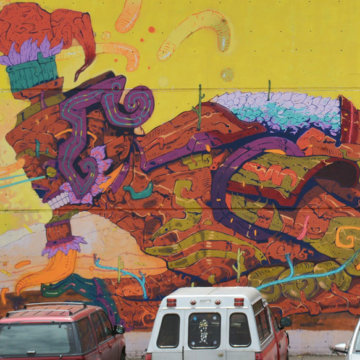- About
- Topics
- Picks
- Audio
- Story
- In-Depth
- Opinion
- News
- Donate
-
Signup for our newsletterOur Editors' Best Picks.Send
Read, Debate: Engage.
| topic: | Sustainable Development |
|---|---|
| located: | Ecuador, Chile, Peru, Venezuela, Bolivia |
| editor: | Ellen Nemitz |
Recently, protests around the world are leading millions of people to the streets to demand their rights: right for democracy, for a worthy cost of life, for sustainable environmental policies, for climate deals that allow a better future, for liberty. In Latin America, this year has been effervescent in many countries. For different reasons, Ecuador, Chile, Venezuela, Bolivia and Peru have been in the spotlight of human right’s watchers.
The former Chilean president and now UN High Commissioner for Human Rights, Michelle Bachelet, said to the Office of the High Commissioner for Human Rights that, in Chile, the "authorities must act in strict accordance with international human rights standards” and highlighted the necessity of an "open and sincere dialogue by all actors concerned to help resolve this situation”.
The country governed by Sebastián Piñera saw violent protests, vandalism and the army at streets for the first time since the end of military dictatorship after the announcement of a subway fare's increase. Similar to what happened in Brazil in 2013, this was just a spark to show a very unequal economic situation combined with a high cost of life, resulting in a low purchasing power for many.
Several people dead, injured and arrested encouraged Sebastián Piñera to apologize for not “revising historical problems” and to announce concession measures such as an increase in pensions and revision in prices. Nonetheless, on Friday, October 25, around a million Chileans went out to thestreets in Santiago and Valparaiso in "the biggest march in Chile”.
The United Nation is also keeping an eye in Ecuador, where violently suppressed protests sparked in the beginning of October due to an austere package, which included a gasoline’s subside cut – causing a 120 per cent price increase – part of a deal with the International Monetary Fund. The Confederation of Indigenous Nationalities of Ecuador got into the quarrel and the president Lenín Moreno went back on his decisions. However, a UN Human Rights Office's mission is in the country since October 20 to investigate alleged human rights’ violations by meeting with "Government Officials, indigenous leaders, civil society representatives, journalists and other stakeholders to collect first-hand information on the circumstances of the violence that spread across the country from October 3".
Other Latin American countries that face struggling moments are Peru, Bolivia, Argentina and Venezuela. In Peru, people went to the streets at the beginning of October after the president dissolved congress, an act considered coup d’état. In Bolivia, people are protesting for an audit in the presidential election won by Evo Morales over the opponent Carlos Mesa.
2In Venezuela the problem comes since the beginning of the year: the quarrel between Nicolás Maduro and the self-declared president Juan Guaidó led to a wretched situation with millions of people migrating to Brazil pursuing better conditions of life. In Argentina, the president Mauricio Macri was not reelected in a country plagued by an economic crisis, where recent protests asked for a policy against extreme poverty and hunger.
And Brazil, where the economic crisis shows its results by the deepening of inequality, may be the next country to convulse. "When people start to feel the effects of these neoliberal policies in the pockets of their families, it will have consequences, and eventually will result in social upheaval”, said the Portuguese sociologist Boaventura de Sousa Santos to the newspaper O Globo. “For me, [Bolsonaro] is a neo-fascist. And I think Bolsonaro has done extraordinary damage to Brazil because he has legitimized all that we have thought had been overcome.” Will Brazilians be the next population to say “enough”?
